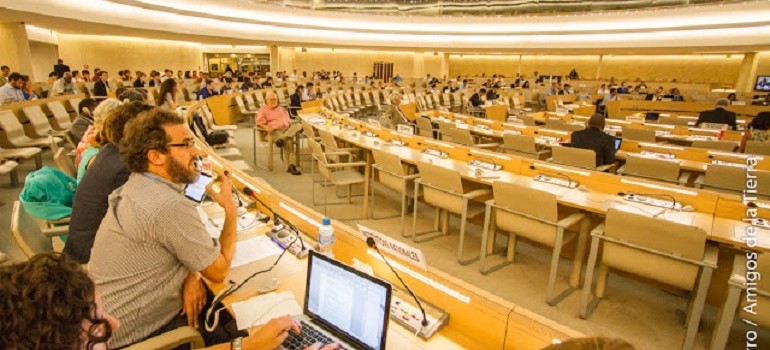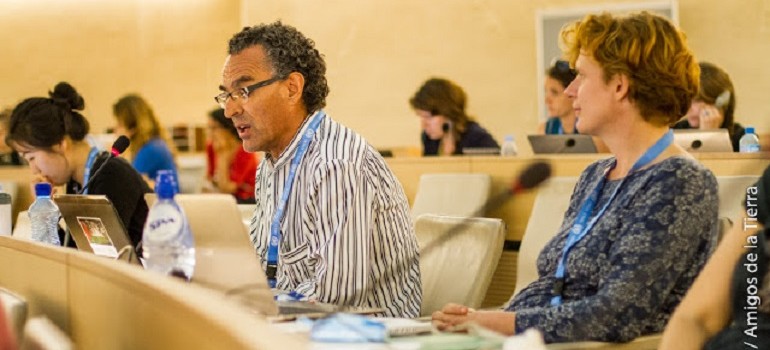Important step forward on TNC’s Treaty Alliance
Closing statement of the CETIM and the Global Campaign at the intergovernmental working group on transnational corporations, other business enterprises and human rights
Continue readingTransnational corporations (TNCs) have become major and powerful actors.
The activities of transnational corporations are a source of multiple human rights violations
In many cases, especially when victims are from the Global South, impunity prevails. TNCs are indeed able to evade national jurisdictions because of the unprecedented economic, financial and political power they command, their transnational character, their economic and legal flexibility and the complex structures they use to carry on their activities.
Since the late 90s, the CETIM is firmly committed to ending the impunity of transnational corporations and ensuring access to justice for the victims of their activities. The CETIM supports social movements, trade unions and organizations representing victims and affected communities from the Global South in their efforts to access the UN human rights protection mechanisms. And the CETIM is involved to their sides in the campaign for new binding international norms to end impunity, providing its support for their participation in the negotiations and the presentation of their proposals.
Access to justice for victims of TNCs
Closing statement of the CETIM and the Global Campaign at the intergovernmental working group on transnational corporations, other business enterprises and human rights
Continue reading
INTERGOVERNMENTAL WORKING GROUP ON TRANSNATIONAL CORPORATIONS 1st session March 2015 [Extract from the declaration] With the globalisation of the economy, transnational corporations (TNCs) have become major, powerful and inescapable actors, and their activities are the source of multiple human rights violations. Today, a few hundred TNCs control most of the world’s production and marketing of […]
Continue reading
Opening statement of the CETIM and the Global Campaign at the intergovernmental working group on transnational corporations, other business enterprises and human rights
Continue readingThis submission contains eight proposals related to the nature, the scope, the form and the content of the future legally binding international instrument. It is submitted on behalf of the Global Campaign to Dismantle Corporate Power and Stop Impunity, an international network comprising over 200 social movements, networks, organizations, and representatives of victims and affected communities from all around the world.
Continue reading
A delegation from the Union of People affected by the activities of the oil company Chevron Texaco in Ecuador (UDAPT) participated in the 29th session of the Human Rights Council with the support of the CETIM to denounce the merciless campaign that the transnational corporation is waging with the aim of criminalizing its victims and […]
Continue reading